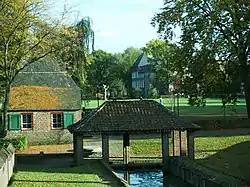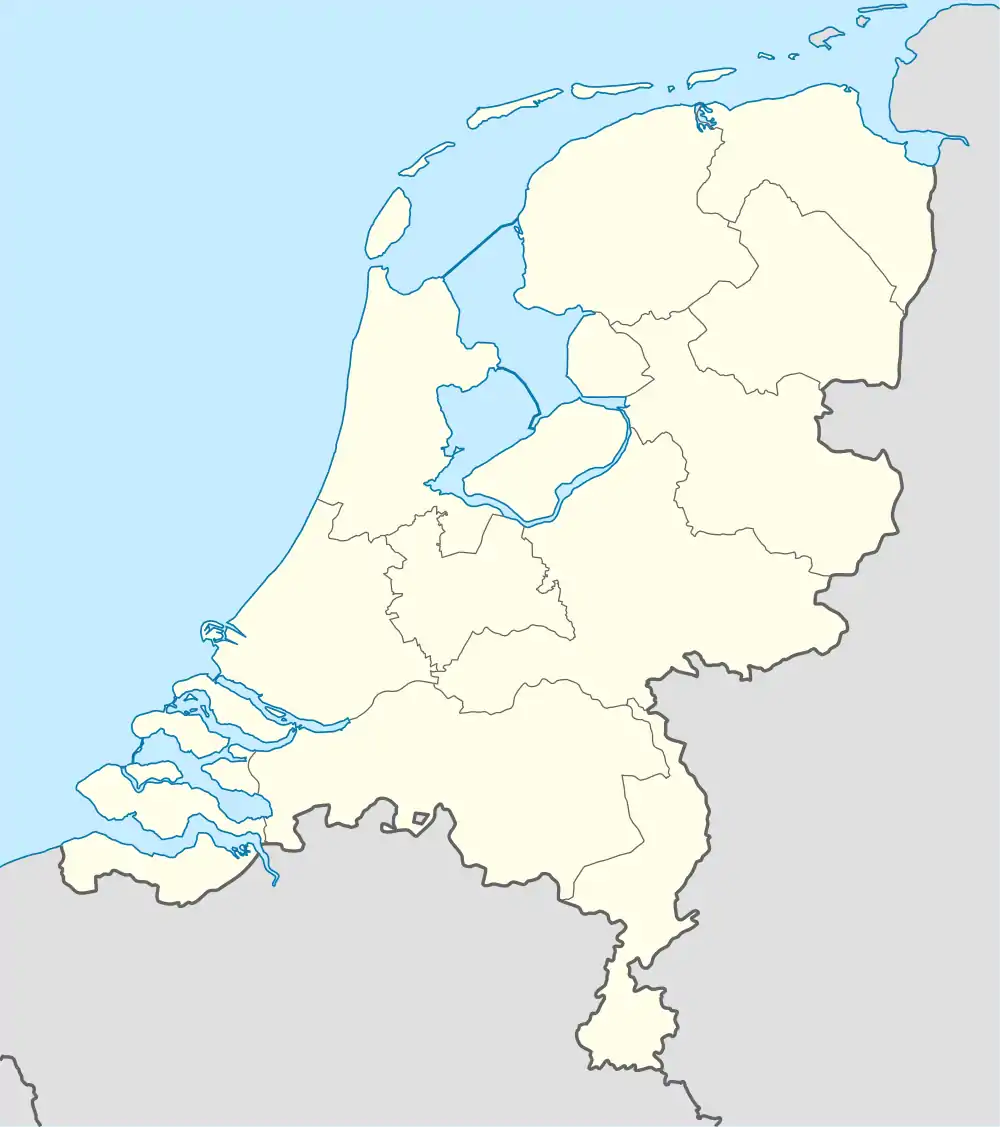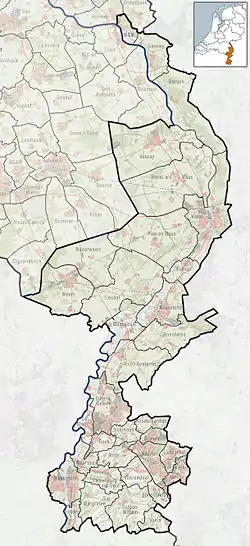Baarlo
Baarlo (Dutch: [ˈbaːrloː]; Limburgish: Baolder [ˈbɔːldəʀ]) is a village in the southeastern Netherlands. It is located in the municipality of Peel en Maas, Limburg, about 6 km southwest of Venlo.
Baarlo
Baolder | |
|---|---|
Village | |
 Water mill and Castle d'Erp | |
 Baarlo Location in the Netherlands  Baarlo Location in the province of Limburg in the Netherlands | |
| Coordinates: 51°19′39″N 6°5′39″E | |
| Country | Netherlands |
| Province | Limburg |
| Municipality | Peel en Maas |
| Area | |
| • Total | 10.94 km2 (4.22 sq mi) |
| Elevation | 20 m (70 ft) |
| Population (2021)[1] | |
| • Total | 5,340 |
| • Density | 490/km2 (1,300/sq mi) |
| Time zone | UTC+1 (CET) |
| • Summer (DST) | UTC+2 (CEST) |
| Postal code | 5990-5991[1] |
| Dialing code | 077 |
Name and symbols
The oldest mention of the name Baarlo is from 1219.
The oldest certificate of the bank of Baarlo dates from 25 January 1377. In 1629 for the first time it used its own seal. The seal shows the Saint Peter, holding a key in his left hand and in his right hand three ropes carrying a shield, on which a stag is shown jumping to the left. At that time, the local lord, schout or pastor sealed the certificates.
History
Archeological excavations have shown that at the beginning of our calendar people already had settled in Baarlo. Later the Romans came; they built the Roman road between Tongeren and Nijmegen and Oyen (between Baarlo and Kessel).
In the 19th century the old church of Baarlo became too small, so the city decided to build a new one. Pierre Cuypers was the architect and the church was finished in 1878.
In 1932, the priest chancel and the transept of the church were extended by Joseph Franssen. In November 1944 the church was blown up by the Germans. A restoration was not possible. Therefore, it was decided to build a new church. This work has been completed in 1955.
Castles
There are four castles in Baarlo. Castles d'Erp (has also been called de Borcht), Berckt, and Raay were built in the 13th century. Castle Scheres was built about 1860 and was inhabited by the American artist Shinkichi Tajiri until he died on 15 March 2009.
Gallery
 Artefact of Tajiri in Baarlo. Behind Castle d'Erp.
Artefact of Tajiri in Baarlo. Behind Castle d'Erp. House in Baarlo
House in Baarlo View on Baarlo
View on Baarlo Alphajet at the Piet Smits Museum
Alphajet at the Piet Smits Museum
References
- "Kerncijfers wijken en buurten 2021". Central Bureau of Statistics. Retrieved 25 April 2022.
two entries
- "Postcodetool for 5991AA". Actueel Hoogtebestand Nederland (in Dutch). Het Waterschapshuis. Retrieved 25 April 2022.